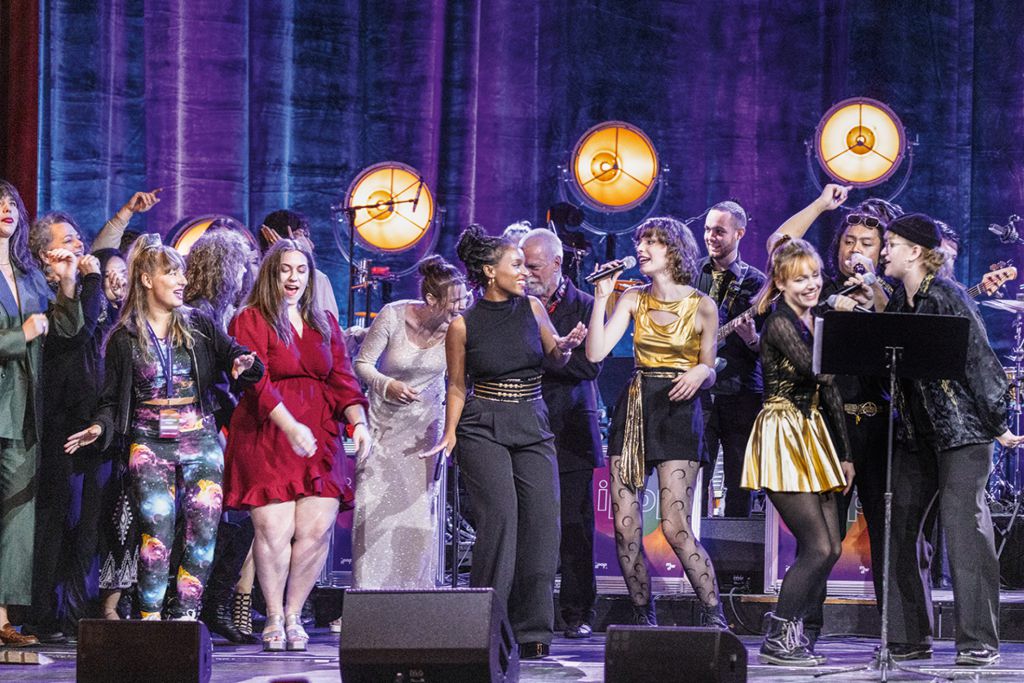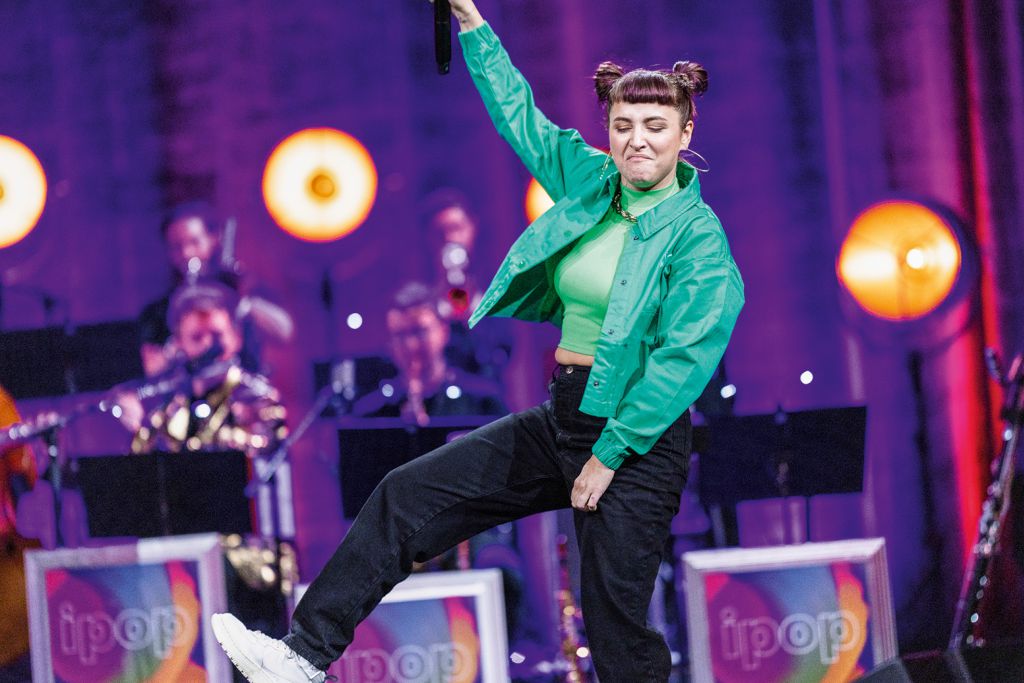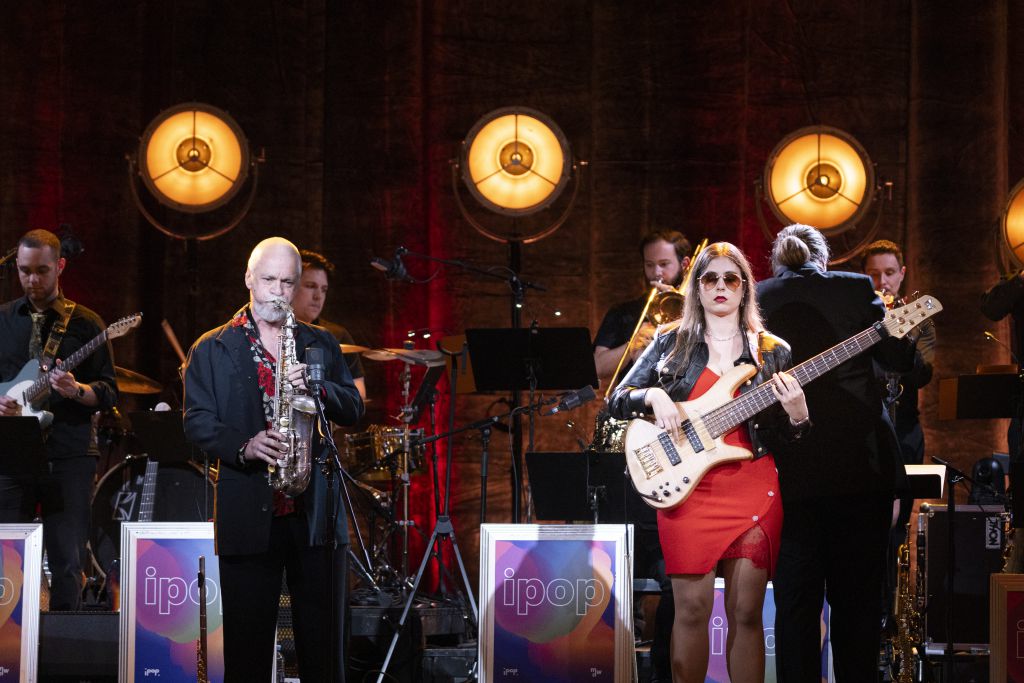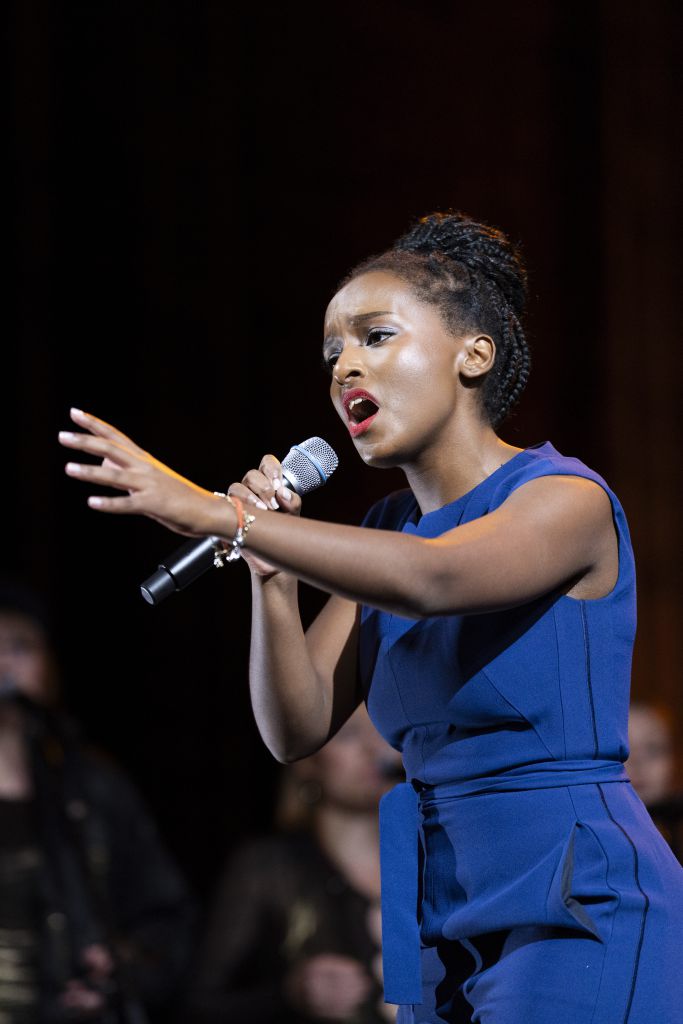Two decades in, the Department of Popular Music is in a good place as a long-established part of the mdw both internally and viewed from without. The opportunity to present its graduates and current students to a broader public was most recently taken in the form of the “20 Jahre ipop” jubilee show on 24 October at Schlosstheater Schönbrunn. “ipop is the best place in Austria to study pop,” says the Bavarian-Viennese disco-pop queen Ankathie Koi.

Having completed her master’s degree here, she now teaches at the mdw’s Department of Vocal Studies and Music Theatre. Harald Huber, who served as her MA thesis advisor, is something like the father of ipop. He began his own studies in 1972—likewise at the mdw, then known as the Hochschule of Music and Performing Arts. To Huber’s puzzlement, pop and jazz were completely absent from our institution at that time. “There wasn’t a single course on any of it,” he remembers. Shortly after his arrival, he became involved in the 1970s university reforms as a student representative—and starting in 1980, he set about developing popular music as a subject area. A milestone was the first lecture course on the topic, entitled Einführung in die Popularmusik [Introduction to Popular Music], which Huber held for the first time during the 1980/81 academic year. That same year saw the introduction of jazz percussion, keyboard instruments, and saxophone as part of young musicians’ training. Over time, the offerings grew broader with further instruments added.

In 2000, a complete reorganisation of the erstwhile Hochschule brought about its reestablishment as an arts university. “We seized upon this opportunity to develop guidelines for a Department of Popular Music,” says Huber, now retired but still active in the context of contemporary popular music didactics and as an advisor to doctoral students working on their dissertations. It was 22 years after his initial popular music lecture course that ipop was officially established. And exactly 20 years ago, in the winter semester of 2003/04, its first students commenced their studies. Since then, the department has been offering a well-founded and broad-based programme of instrumental, artistic, pedagogical, and academic study.

For the past one-and-a-half years, pianist and keyboarder Gerald “Geri” Schuller has been serving as department head. According to Schuller, “We were lucky to be founded late. By 2000, the wall between pop and everything else had become quite permeable. Prior to that, jazz had been viewed as kind of okay—but not pop.” Within Austria as well as internationally, the stylistic breadth of the department’s current offerings is unique: from pop and rock to folk-influenced entertainment and on to free jazz, everything is represented. “We don’t do Schlager-bashing; every genre has a right to exist,” emphasises the music and literary manager Günther Wildner, who heads the music business emphasis at ipop. Diversity has been a guiding principle of ipop since long before it became a universal catchword: the department’s stylistic breadth is evident above all in the ensembles on offer, which range from world music to heavy metal. Students gratefully embrace these opportunities, with most joining more ensembles than required. The share of women is still miniscule in certain subjects like electric guitar—but viewed broadly, it is indeed quite high. There are also more and more students with migratory backgrounds, and the blind bassist and ipop student Ciara Moser is currently on the cusp of a worldwide career.

It goes without saying that ipop can develop even farther and achieve even more. “In Austria, the tendency often skews too far towards training outstanding sidemen and sidewomen,” says Schuller. To this, Huber adds: “We could also produce an Austrian Lady Gaga.” At the moment, though, that’s still quite far off. ipop is not a “pop academy” as such, but instead focuses primary on the training of music teachers. Its graduates can then go on to teach at music schools or at schools of general education. However, 60 percent of its students are most interested in the artistic side of things. It’s thus that recent years have seen efforts made within the department to work towards the creation of a performance programme that does without education-related subjects—a programme that is currently taking shape. Right now, the department therefore finds itself in a transitional phase.

Quo vadis, ipop? Günther Wildner thinks that training should be geared more toward students’ future professional lives and careers. After all, “Everyone eventually stops being a student here—and that’s when things get interesting.” Ankathie Koi agrees: she would’ve liked to see lots more music business-related course offerings during her studies. On the other hand, the busy jazz saxophonist Leonhard Skorupa—likewise an ipop alum—thinks it’s important to “view and run arts universities as sheltered workshops where you can try things out free from worry.” Skorupa continues: “I was lucky enough to be surrounded by teachers who were free spirits in a creative sense and hugely inspiring.”

Both sides and approaches, then, would seem to have their merits. Department head Schuller voices the general complaint that, even today, pop music in Austria isn’t yet viewed as an export: “We need a long-term strategy for this, but that shoe has yet to drop. In Sweden, for instance, the music industry, public-sector sponsors, and the institutions where people train have an overall master plan: to make money with music.” But on the other hand, he adds, the lack of a close relationship with the music industry definitely does has its advantages. That, he says, ensures freedom in teaching.
So is it possible to encapsulate ipop in one sentence? Schuller is game to attempt it: “Anyone who’s curious about popular music and wants to meet people who share this curiosity will find no better place anywhere in Austria.” And even so, he’d still add two more sentences: “I’ve been astounded by just how high a level our current applicants are at. The 19-year-old me would have no chance whatsoever of being accepted here today.”

